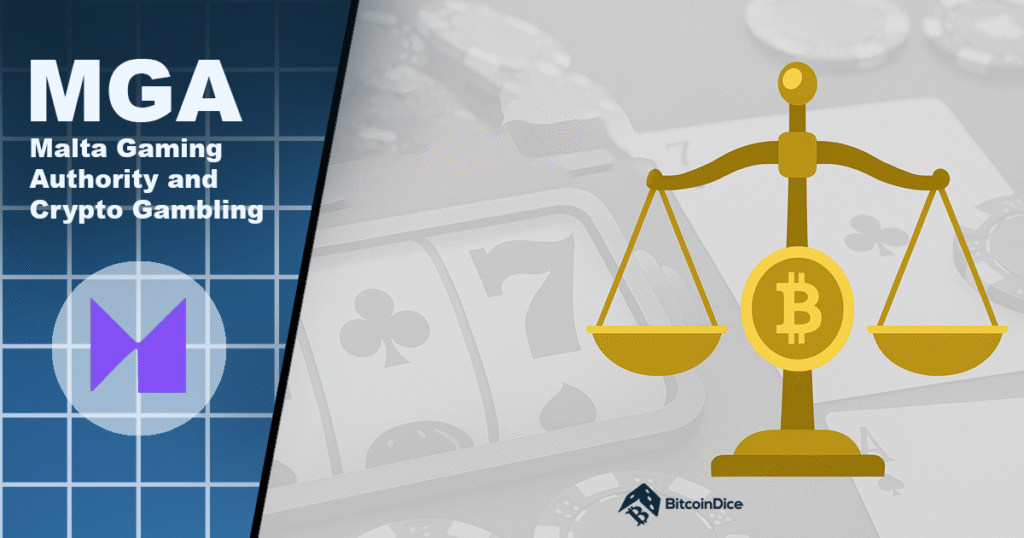Malta holds one of the most respected online gaming licenses, so how does it regulate crypto-gambling platforms? Since issuing its “Sandbox Guidance” in March 2018, the Malta Gaming Authority (MGA) has steadily refined its approach to Distributed Ledger Technology (DLT) and crypto-casino oversight, evolving from a temporary pilot into a comprehensive, permanent framework that prioritises player protection, technical integrity and regulatory transparency.
The 2018 DLT Sandbox
In March 2018 the MGA launched its “Guidance on the use of Distributed Ledger Technology and the acceptance of Virtual Currencies through the implementation of a Sandbox Environment,” creating a two-phase pilot for existing license-holders:
- Crypto Payments Pilot – Operators could accept Virtual Financial Assets (VFAs), such as Bitcoin, for deposits and withdrawals, provided they implemented approved wallet management controls.
- On-Chain Game Logic Pilot – Participating licensees tested smart-contract-based game mechanics under MGA supervision and with MDIA-registered auditors certifying fairness.
Through successive extensions until December 2021, the sandbox yielded clear benefits, including enhanced reconciliation accuracy, zero major security breaches, and practical insights into on-chain randomness and custody models.
January 2023: Permanent DLT Policy
Building on sandbox lessons, on 23 January 2023, the MGA published its Policy on the use of Distributed Ledger Technology by Authorised Persons, embedding DLT requirements into its core rulebook rather than treating them as an experimental policy. Key elements include:
- Approval Requirement: Any authorised person must obtain prior MGA approval to accept VFAs or virtual tokens, and to deploy DLT-based Innovative Technology Arrangements (ITAs) such as smart contracts (sections 2 & 6)
- Wallet-Management Standards: Detailed policies must cover wallet structures, private-key custody, address-change procedures and transaction record-keeping for every player account (section 2.3)
- Continuous Compliance: Bi-annual attestations by MDIA-approved auditors are mandatory to confirm AML/CFT controls, smart-contract integrity, and on-chain fairness (sections 3.1 & 4)
- Risk-Based Limits & Reporting: Deposit limits are set in fiat terms to mitigate VFA volatility; failed transfers and excess funds must be reported monthly alongside player-funds statements (sections 2.5–2.8)
A transitory clause ensures that sandbox approvals remain valid, provided operators implement all new safeguards within three months of publication (section 8).
Key Requirements for Crypto-Casino Operators
Operators integrating DLT in their gaming offerings today must demonstrate:
- Technical Robustness: Secure multi-sig or hardware wallet custody, clear wallet-address-change protocols, and fallback mechanisms to fiat rails.
- Player Protection & AML/CFT: Real-time transaction monitoring, blockchain forensic tools, and transaction-limit enforcement aligned with the Player Protection Directive.
Regulatory Transparency: Public disclosure of smart-contract code, detailed legal opinions on asset classification, and pre-approval for any change in accepted DLT assets.
These requirements have solidified Malta’s reputation as Europe’s leading jurisdiction for compliant crypto-gaming, attracting both blockchain pioneers and established operators.
How to Obtain an MGA Crypto-Casino License
Obtaining an MGA crypto-casino licence grants operators access to one of the world’s most respected regulated gaming markets, offering unparalleled credibility and seamless entry into Europe’s extensive player base.
- Pre-Application Consultation: Engage the MGA’s online gaming unit to outline your DLT proposal.
- Formal Application: Submit corporate, financial, and AML/CFT documentation. Provide a technical dossier on wallet infrastructure, smart-contract code, and custody arrangements.
- Auditor Engagement: Retain an MDIA-registered auditor to vet smart contracts and platform security.
- Approval & Ongoing Compliance: Upon licence grant, pay fees and submit bi-annual compliance attestations under the 2023 DLT Policy.
Earning an MGA licence not only demonstrates your commitment to rigorous technical, AML/CFT, and fairness standards but also elevates your platform’s standing among players and industry partners. By following the prescribed application process and collaborating closely with the Authority and MDIA-approved auditors, you’ll secure Malta’s strategic advantages: regulatory stability, strong market reputation, and streamlined cross-border operations.
Summary
Over seven years, the MGA has evolved from a controlled sandbox to a fully integrated DLT policy regime. By codifying rigorous wallet-management, smart-contract audit, and AML/CFT standards, it balances innovation with player safety, making Malta the world’s first mature hub for regulated crypto-casinos.
References
- Malta Gaming Authority, “Policy on the use of Distributed Ledger Technology by Authorised Persons”, January 2023, mga.org.mt.

